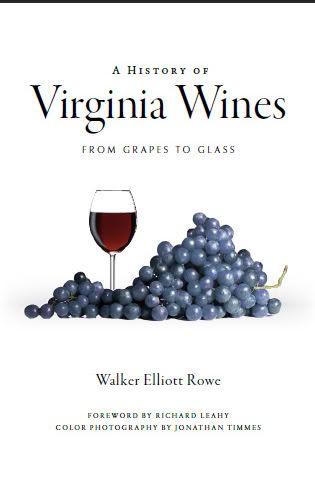Today the relative humidity is 25% which is oddly low for Virginia which is why there is a fire hazard warning. It's 75 degrees heading up to almost 90 degrees on this the first week of April. Normally the vineyards in this part of the state break bud on around April 15 but these high temperatures could push that up a week or more thus subjecting them to hazards from late season frost--this is why I hardly have peaches on my two peach threes. This weekend I started training my two apprentices at Castleton Lake Vineyards. We finished pruning 330 vines and spread compost on each vine. At my own farm I finished pruning the 140 vines I have there. I planted two long rows of beets and leeks and set out yellow onion sets. These plants are all somewhat frost tolerant. Summer vegetables will have to wait until May 15. Inside the greenhouse I have cilantro, spinach, and arugula which overwintered plus newly germinated lettuce and more spinach which comes back year after year from seeds. I also have stinging nettle which I planted because it is high in silica and thus a good fertilizer of other plants.
Sunday, April 4, 2010
Spring Green Up
In the goat herd I am up to 17 goats. The first doe I bought in 2007 died this week along with two of her kids. Two more goats had eye inflammations. The veterinarians here know not much at all about goats so I turned to other farmers for help. The goat with the swollen eye suffered a contagious disorder which causes no lasting damage, but it should be isolated which I cannot do since it is a suckling kid. The adult goat that died was probably sick from not sure what and her kids died because she was too weak to pass any colostrum to her offspring so they lacked any immunity which she could have passed them. All of this is only conjecture unless I were to dig up the animals and deliver the carcass to the vet for post mortem. But what I know for sure is the goats did not died of intestinal parasites (worms). Dr. Massie here of Rose Hill Veterinarians advised me last year to give my goats cattle deworming medication since those products labeled for goats do not work. Since using Dectomax last year I have not lost any more animals to worms.
The pastures are finally green now after the long dreary days of winter. But my neighbors farms are greener yet than mine for they have grazed cattle there for years while my fields were used until recently to produce hay (hay of course robs the soil of nutrients whereas animals improve it). My woods are filled with multiflora roses, honeysuckles, and of course green grass all of which are loved by the goats. Still my herd keeps hoping over the electric fence and and crawling under the barbed wire to graza the greener pastures on my neighbor's farm--today I put one more strand at the top to make the fence a more formidable barrier to hop. One neighbor, Doris Coughlin, is highly annoying because when my animals get out in years pas she would call the animal control guy who would come out with his flashing yellow light. (He still calls on occasion to ask if I know who might be the owner of such and such wayward cow.) Mrs. Coughlin says she is worried the animals will eat her green beans. But goats prefer brush and vines to vegetables and will pick the weeds from around beans or squash. So they are excellent at keeping down the weeds and could even work in the vineyard if they did not stand on their hind legs to reach the leaves up on top. Sheep don't stand on their hind legs which is why in some vineyards you see them taking the place of the hoe and chemical weed control.
Subscribe to:
Post Comments (Atom)








No comments:
Post a Comment